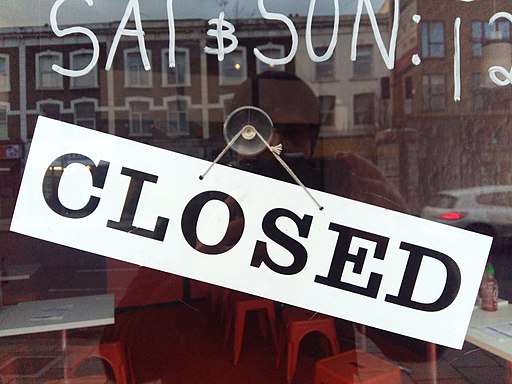Search
Those COVID-19 stay-at-home and business-closure orders in your state may be unlawful after all
Yesterday, a Pennsylvania federal judge issued this 66-page blockbuster decision, in which he concluded, among other things, that Governor Wolf violated the United States Constitution with orders closing “non-life-sustaining” businesses otherwise and directing Pennsylvanians to stay at home.
A 66-page opinion does not lend itself to a short blog post; neither does parsing through involved constitutional arguments. But, I’ll do my best to keep this short(ish) and in plain English.
Limits to emergency power.
So, let’s begin with an early quote from the decision that foreshadows the eventual outcome here:
In an emergency, even a vigilant public may let down its guard over its constitutional liberties only to find that liberties, once relinquished, are hard to recoup and that restrictions-while expedient in the face of an emergency situation-may persist long after immediate danger has passed.
The court acknowledged that states might implement temporary measures to remedy a “fleeting crisis.” But, the court also confirmed that this “deference cannot go on forever. It is no longer March. It is now September and …[the Commonwealth has] no anticipated end-date to their emergency interventions.” Thus, the concern is that residents may lose constitution privileges like the right to travel, earn a living, or associate with one another.
Plus, at some point, the Governor must get other branches of government involved so that our system of checks and balances operates as intended.
Heck, even the CDC didn’t recommend this much widespread home isolation.
In other words, when early in the COVID-19 pandemic, the Commonwealth of Pennsylvania ordered its residents to stay at home with limited exception, there were limits to this power. And the court concluded that the Commonwealth of Pennsylvania had exceeded its authority — so much so that it violated the Constitution.
Life-sustaining versus non-life-sustaining business is arbitrary and capricious.
(How am I doing so far? Still with me?)
Yet another issue for the court was the distinction between so-called “life-sustaining” businesses like Walmart, Lowes, and Home Depot versus other non-life sustaining businesses like mom-and-pop shops. The former were permitted to stay open; the latter could not. However, in many situations, the distinction between the two appeared to have more to do with quantity than quality.
The court noted that the Commonwealth’s decision to close non-life-sustaining businesses didn’t keep a consumer home. If s/he was looking for a lamp, for example, it just sent the consumer to Wal-Mart rather than a smaller local business. While the idea was to limit in-person interactions to reduce the spread of COVID-19, the larger retailers continued to attract crowds, while smaller proprietors had to close.
And that’s not very fair. In the court’s opinion, this distinction between life-sustaining and non-life-sustaining wasn’t a distinction at all. So, it too was unconstitutional.
A moot point? Not really.
So why is this still an issue? I mean, when the lawsuit was filed back in May, the Commonwealth was in the process of laying the groundwork to re-open businesses through a three-phase Red-Yellow-Green process that eased restrictions on residents and companies based on county COVID-19 rates.
Fast forward to September, and Pennsylvania has been one of the better states at controlling the transmission of COVID-19. But, residents are still warned to self-isolate if they travel out of state, and some businesses like restaurants and gyms cannot operate at full capacity. Plus, if the colder weather contributes to a spike in coronavirus, the Commonwealth retains the right to reinstate certain restrictions.
So, that’s why this issue isn’t resolved. And the court put the kibosh on the Commonwealth’s ability to dictate which businesses remain open and who must self isolate.
What’s next?
The Commonwealth plans to appeal this decision to the Third Circuit Court of Appeals. Indeed, as Sarah Anne Hughes writes (here) at the Courier-Times, this decision “came two weeks after a federal judge in Philadelphia threw out a similar challenge to the business closure order, saying the restrictions were temporary and, therefore, did not infringe in any permanent way on business owners’ constitutional rights.”
So, we have a split in the Commonwealth that’s ripe for resolution.
While these decisions do not directly impact individuals and business owners in other states, other similar lawsuits have been filed. So, a forthcoming Third Circuit decision could have some persuasive effect there.
For now, if you operate in the eastern part of Pennsylvania, these Commonwealth rules technically still apply. But, in the west, they do not. I’ll update you when the Third Circuit resolves the issue.
 The Employer Handbook Blog
The Employer Handbook Blog



